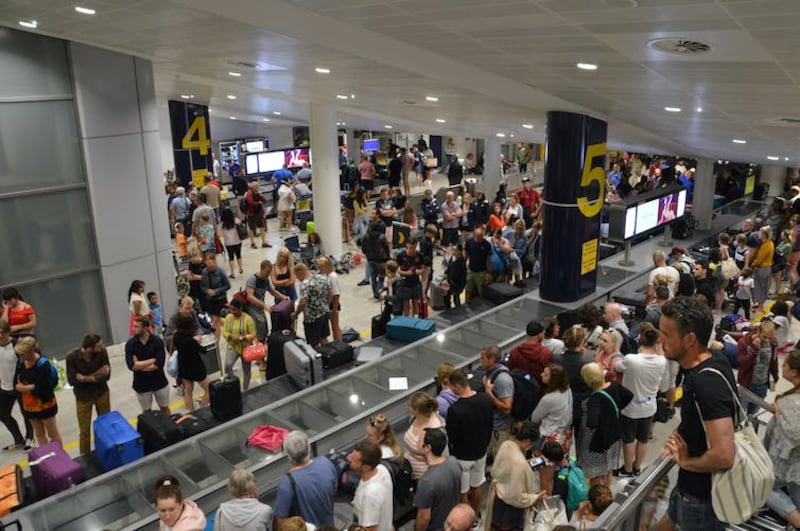Going on a family holiday is not always a relaxing experience. It can involve traffic jams, airport queues and stress. Even so, most of us look forward to going away for the change of scenery and break from our everyday routines. For autistic children, though, these changes in environment and routine can be difficult to cope with. And our research suggests that this can make their family holidays extremely fraught affairs.Some of the British parents we spoke to said the challenges of taking their autistic children away on holiday were so great that they would only go on short trips (35% only ever spent one or two nights away). Many did their best to avoid peak travel times and other situations in which their child might become overstimulated. A large majority (over 80%) only ever took their holidays in the UK, rather than going abroad. Some said they chose not to go away on holiday at all, and took day trips instead to avoid overnight stays.Many told us that having an autistic child had a significant effect on when, where and how they took family holidays. One parent commented: “I need a holiday myself by the time I get back from having my son full-time on my own.” Another said their latest holiday was so “traumatic [that it] made us cancel a future holiday and put us off trying to go again”.
Reactions of other holidaymakers
Overall, our research found several common reasons why parents found it difficult to take their autistic children away on a family holiday. We were surprised to learn that the biggest factor was the reactions of other holidaymakers to their child’s behaviour. Autistic children can often become anxious when they encounter new and unfamiliar stimuli, which of course come thick and fast on holiday. And when an autistic child becomes overwhelmed by anxiety, they may become visibly upset or engage in something known as self-stimulating behaviour, or “stimming”, which can involve things like rocking in a seat, flapping hands, banging toys together, or pacing up and down.Some parents (from a sample of 295 families with autistic children) told us this was often interpreted by others as “bad behaviour”, and that they felt judged for not being able to control their offspring. Nearly half of the parents in our survey considered interactions with other holidaymakers to be a difficult aspect of travelling with an autistic child. Many of these said that other holidaymakers seemed to lack understanding or empathy for their child’s condition. Some would glare, while others even scolded the child themselves.
Avoiding triggers
Going on excursions or to events was another stressful part of holidays, according to our survey participants. Many chose to avoid them and stay close to their accommodation throughout their trip.

But this then raised another issue which came up frequently – how to entertain an autistic child’s siblings. Some autistic children, for example, can be sensitive to loud noises, bright lights and strong smells – which may well feature in the kinds of places their siblings find exciting and want to visit. As one mother explained: “The holiday is supposed to be for the whole family, but my whole time is spent calming and attending to my autistic daughter due to her heightened struggles on holiday. My younger child and other family members do not have the holiday [they expect to have].”Parents also mentioned that while the travel industry as a whole seems to have made significant gains in terms of meeting the needs of people with mobility issues, those with other needs are poorly served by comparison. Some said that things like quiet spaces at airports or fast-track queues at amusement parks would be extremely helpful. Alternative ideas included the provision of noise-cancelling headphones on flights, and weighted blankets and blackout blinds in hotels. Other holidaymakers can also do a lot to help. As fellow travellers, and often fellow parents, we need to be more aware of the challenges that taking an autistic child on holiday can involve. Our research strongly suggests that a more tolerant attitude towards the behaviour of autistic children, and a greater degree of empathy with their parents, would go a long way to helping the whole family get the break they deserve.

Brian Garrod, Professor of Marketing, Swansea University; Allan Jepson, Senior Lecturer and Researcher, University of Hertfordshire, and Raphaela Stadler, Associate Professor for Tourism and Event Management, MCI Management Center InnsbruckThis article is republished from The Conversation under a Creative Commons license. Read the original article.


